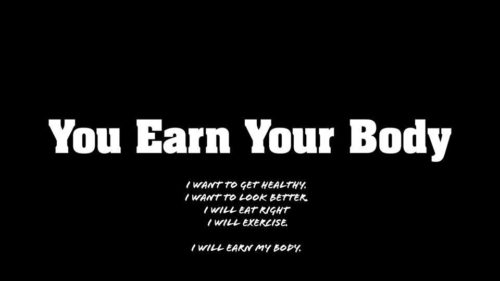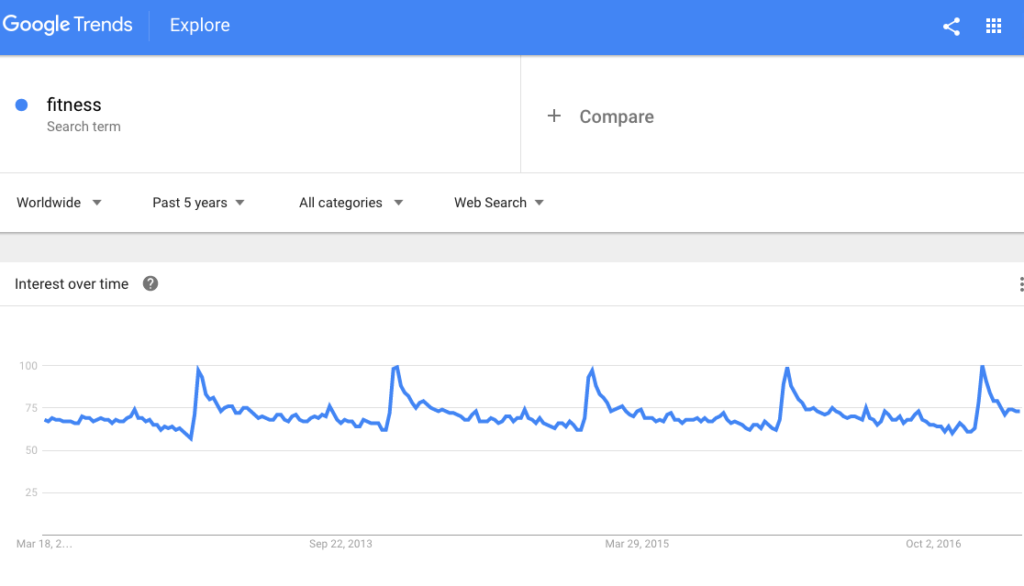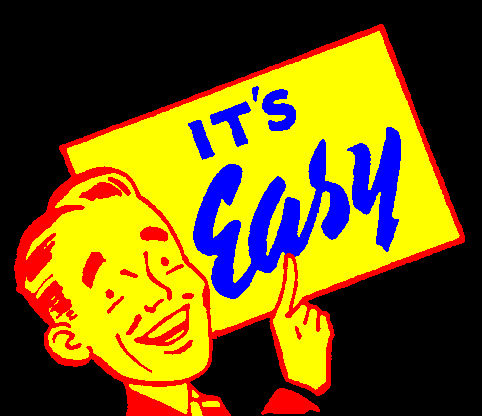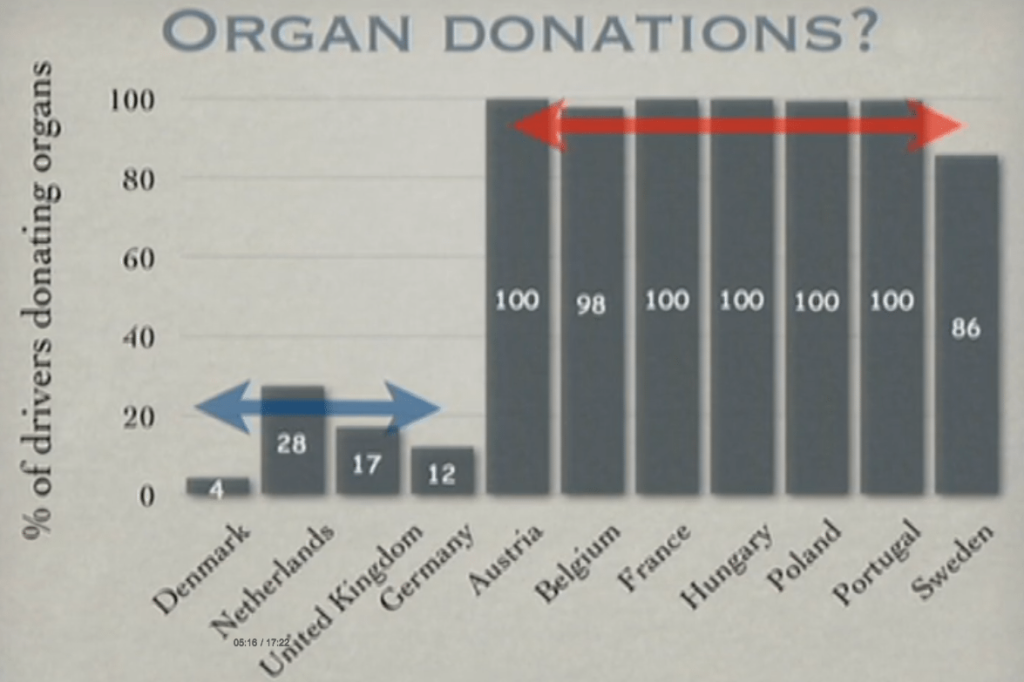Recall the three pillars that are the foundation of a good life: health (foundation), wealth (freedom to do), and wisdom (personal growth). There is incredible potential when you incorporate these into a powerful daily routine–a FirstHabit checklist.
However, despite your best intentions, sometimes it’s difficult to follow through on your plans. I get it.
For me, willpower lasts about three days. That’s about how long I can stick to something that I’ve decided to do. It looks something like this:
Day 1: “Yes! I’m doing it! This is going to be so good.”
Day 2: “This isn’t so bad. I’m sure I’ll grow to like it.”
Day 3: “This is hard.”
Day 4: “What’s on TV?”
Research has shown that willpower is like a battery. Sometimes it is fully charged. This is when you feel in full control. You can do anything.
Other times it is low. This is when you feel like you just can’t muster the energy/action necessary to follow through.
Temperament also plays a role. Some people seem to just have more willpower than others. Remember the famous “Stanford marshmallow experiment?” Children were given a marshmallow and told that they could eat one now, or if they could wait, they would get two. Here’s a fun video (not the original experiment) that demonstrates how different kids respond:
Like a battery, willpower can be depleted (aka “ego depletion“). We have limited mental resources to apply to our daily activities, and when these resources are used up, we have a hard time following through.
So what is the answer? Don’t rely on willpower. Willpower is fickle. Willpower relies on feelings. Willpower is the weakest link in the habit chain.
Instead, build a system that makes success inevitable. It’s like a way to inoculate yourself against the inevitable challenge to your new habit. The following is a checklist of 7 ways you can build strong habits. Let’s use early morning exercise as an example, but you can use this for any habit you want to build.
1. Remember Your Why
When willpower is running low, one way to reset your mental state is to quickly and vividly recall “why” you care. It should be something that you can do in a split second that helps you of visualize the outcome in rich detail. Your could recite/read a quote that inspires you (click here and here for some ideas), or you could create a mental picture of your future self enjoying the fruit of your labor.
There is no right or wrong, but it should inspire you. I create a mental image myself enjoying how I look and feel and think of this quote:

Take Action: Print the quote or poster and put it in your bathroom where you will see it first thing every morning.
2. Make a “Fresh Start”
Have you ever wondered why ‘New Year’s resolutions’ are so prevalent? Or why each week feels like a new beginning? It’s something that researchers have discovered called the “fresh start effect,” and here is how the authors describe it:
The popularity of New Year’s resolutions suggests that people are more likely to tackle their goals immediately following salient temporal landmarks. If true, this little-researched phenomenon has the potential to help people overcome important willpower problems that often limit goal attainment. Across three archival field studies, we provide evidence of a “fresh start effect.” We show that Google searches for the term “diet” (Study 1), gym visits (Study 2), and commitments to pursue goals (Study 3) all increase following temporal landmarks (e.g., the outset of a new week, month, year, or semester; a birthday; a holiday). We propose that these landmarks demarcate the passage of time, creating many new mental accounting periods each year, which relegate past imperfections to a previous period, induce people to take a big-picture view of their lives, and thus motivate aspirational behaviors.
In other words, there is a lot of power in giving yourself permission to start over. Skeptical? Just look at the following graph (hint: it’s not a heart tracing, but the rhythm is just as regular):

Every January there is a spike in people searching for information on “fitness.”
Take Action: Don’t think you have missed the boat, since January has passed. Decide that your “fresh start” begins tomorrow. One day or Day one. You decide.
3. Make It Easy To Succeed
When you are trying to start a new habit, it’s important to understand what you’re up against. Your brain releases specific neurochemicals when you experience success (dopamine) and failure (cortisol).
The problem is that when willpower is depleted and you “fail” to do what you had planned, your brain releases the unhappy neurochemical cortisol. Not only does this make you feel bad, you are likely to think negative thoughts like “I just can’t do it.”
Some people will even form a strong negative association with “resolutions” because they have felt so much pain when they “failed.” If this has happened to you, you need a way to reverse this cycle.
Previously I wrote about how a home workout video is like a “silver bullet” for getting fit. The major power behind it is that it makes it easy to succeed. Why? Because it starts with a tiny behavior–just push play.
Yep, that’s it. Start with a tiny habit because then you will get small release of a happy neuochemical (dopamine). Can’t quite finish the workout? No problem. Can’t keep up with the people on the recording? No guilt. Did you push play? Yes? Then you succeeded (dopamine hit).

Take Action: Find a decent workout video (I have used and recommend Focus T-25) and “just push play” for 5 days in a row (M-F). Then do it for 5 more (M-F). Record it on a simple chart in your bathroom.
4. Use Decision Engineering
We like to think that we are making lots of decisions about what we do. The truth is that the structure of the environment is making most of our decisions for us. Organ donor programs and 401k retirement plans have both realized that changing from “opt in” to “opt out” completely changes people’s behavior. We usually accept the default choice. A great TED talk by Dan Ariely illustrates this point:

Differences in ‘opt-in’ vs ‘opt-out’ choices for organ donations
This is called decision engineering and you can use it to your advantage.
If you are anything like me, all it takes is one small indecision to throw me off track. In the case of exercise and strength training, the barrier has been not really having a plan. I didn’t have a default. There were too many choices, and I didn’t really know what would be best. How many push ups? Should I do burpees? For how long? I didn’t want to have to think through all that . . . I just want an expert to tell me what to do.
Using a home workout video is a form of decision engineering. By making one decision (getting a program), you have set up an environment that will lead to success (fitness and increased strength). No more decisions. No dependence on daylight, weather, or travel. Just follow the program.
Take Action: Make a home workout your “default” option. Make it so that you have to “opt out” of your routine. Budget it into your morning by learning to wake up early.
5. Create Accountability
If no one knows my plan, it’s easy to let it slide. But I hate to let someone else down. It’s part “saving face” and part accountability. Put my pride on the line, and I see my intrinsic motivation jump a few notches.
If you’ve played on a sports team, you know what I mean. There were days you didn’t want to go to practice, but you still went because people expected you to show up.
Use this powerful influence to your advantage. If you are married, you can get your spouse to commit with you and you can hold each other accountable. You could also challenge a group of friends to join you (then text each other when you’ve succeeded at your tiny habit).
Take Action: Find an accountability partner, share your goal, and then follow up daily.
6. Bundle
Working with your own mind can be like working with a monkey. Sometimes you need to “bribe” yourself into doing what you want. Researchers have shown that by linking a new habit with a reward, you can make success more likely. They called it “temptation bundling.” This kind of incentive can be the activation energy you need to follow through.
Once your new habit is solidified (may take up to 60 days), you will not likely need the reward to keep going. In the case of exercise, your results are often enough to propel you forward.
Here’s how you can use it to help you. Decide that you will only allow yourself to watch you favorite show later if you do your workout in the morning.
Take Action: Pick a “reward” that you can bundle with your new workout habit. No workout, no reward.
7. Use Momentum
It takes a lot of energy to get a train moving, but once a train is moving, it’s hard to stop. This is due to momentum.
You can build momentum in your life. For example, we all seem to be fascinated with streaks in sports. We love it when there is a team that has a huge number of consecutive home wins, or a basketball player with consecutive free throws. There is mounting pressure to keep the streak alive.
I used this to help me get good grades in high school. At first, I just did my best without any particular goal in mind. But after I had a streak going, it was highly motivating keep it alive.
Use momentum to help you by building a streak of workouts. Remember, it’s only for fun, so don’t over stress it. Since life happens and absolute perfection is not my goal, I try to avoid 2 weekdays days in a row without a workout. I consider this success.
Take Action: Print out a calendar and put a large red x in the box when you complete a workout. Then have fun watching the string of red ‘x’s build. [In my case, my goal is to workout Monday-Friday. So, I only count Monday-Friday in my string. Saturdays and Sundays don’t count.]
Take Home Points
- Willpower is mental energy that can be depleted like a battery
- Relying solely on willpower to establish a new habit is likely to fail
- Use evidence-based techniques to create a system to build strong habits. The more of them you use, the stronger your habit will be
What do you think? Have you tried any of these techniques? What is your experience? Are you willing to take action? Why or why not? Comment below!
Matt Morgan, MD writes about how mastering the first habit is like pushing the power button on your life. Subscribe to his e-mail list and follow him on Twitter and Facebook.



Love it.
Getting and staying in shape requires discipline. Most of us struggle with doing what we know we need to do when we need to do it – especially if we don’t feel like doing it. These tips are powerful tools to use in that battle.
Yep, the words “need to” and “have to” imply an external control, so I try not to ever use them. When I remember the ‘why’ it puts me back in control. And by using these strategies, you can also eliminate the need to “feel like doing it.”
So instead of “I need to do this, but I don’t feel like doing it.”
It becomes, “I’m choosing to do this, and it doesn’t matter if I don’t /feel/ like it.”
I love the “action plans” after each point. Great tips.
I think the “make it easy” part has helped me most. For instance when my bike was in my detached garage I never rode it because the lock on the garage was a huge pain and it was out out of site, out of mind. But now that it’s in the living room it’s much easier. The only one that hasn’t worked for me is accountability. For some reason it doesn’t matter if someone knows I’m doing something. If I don’t follow through I sometimes don’t care if it disappoints them. lol!
Not worrying about disappointing someone else is a sign of a healthy self-esteem.
The difference between opt-in and opt-out is incredible. The donor organ shortage could be eliminated overnight with a universal opt-out.
Best,
-PoF
True. Lots of opportunities to change social behavior by engineering descions.
Great info and I love the tips you provide. I personally enjoy living an active lifestyle using functional exercise. For example, I bike or walk nearly everywhere, I almost always take the stairs, etc. This way by default I do the very things that make me feel good without requiring much willpower. It did help when I got ride my car nearly 3 years ago… much easier to get on a bike in the rain or snow when you don’t have a car sitting tempting you in your garage!
Sounds like you’ve done a lot of decision engineering. Make the decision to get rid of the car, then lots of other decisions are already made. Functional excercize is another great approach to build good things into the flow of the day.
I started to reduce my gluten intake for a variety of reasons back in 2012, and now it’s habit. I did wean myself off with only having it 1x a day, then 1x everyother day etc. It was easy to succeed and i had to decided did i want a snack at the department meeting or raviolis for dinner. I don’t miss it, and I can easily pass up the cake & donuts at work. The consequences of eating it also keep me on track. I’m not celiac so I can ‘cheat’, but it is a careful evaluation. Store bought cake vs something home made with the person standing there with their baked good, I’ll have a tiny piece. We had a family medical emergency over the Christmas holiday and it would have been easy to just eat whatever, take comfort in carbs, have that bagel, but at 4+ years, it’s habit and I know my body felt better for sticking to what I know.
I am 100% with you on accountability and my solution is to go to yoga classes. I sign up in advance and feel like the teacher is expecting me. Except for coming down with something during the day once and skipping, it gets me there.
Thanks for great tips! 🙂
It’s amazing how setting up some “rules” can really make a difference. Most people just go with the flow, but even a few boundaries can really change your trajectory. Congrats on sticking with it.